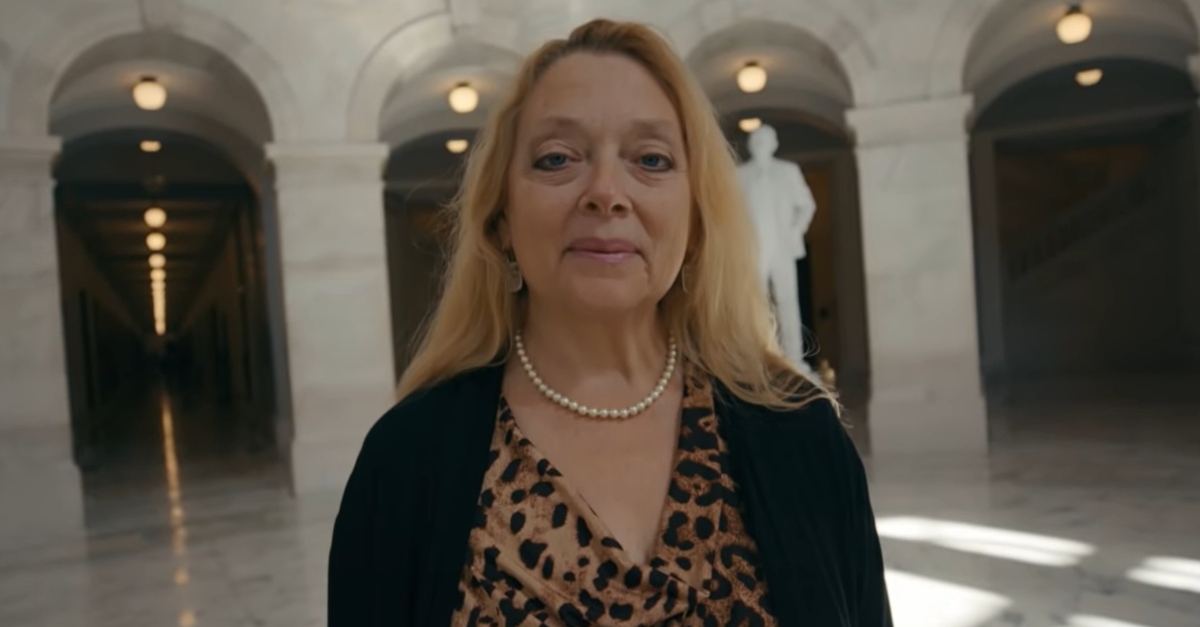
Carole Baskin
Two major subjects profiled in the popular Netflix docuseries Tiger King criticized the show in no uncertain terms, going so far as to call the presentation a “betrayal.”
“I just feel so angry that people have totally missed the point,” lightning rod Carole Baskin told The Tampa Bay Times. “And the point is these cubs are being abused and exploited and the public is enabling that.”
She and her husband Howard Baskin, who run the Tampa-area Big Cat Rescue, said they had believed the show was going to focus on their efforts to stop commodifying the captivity of tigers. Instead, the series often focused on the point of view of rival Joseph Maldonado-Passage (an Oklahoma zookeeper better known as Joe Exotic), who the Baskins tried to run out of business. Maldonado-Passage was recently convicted in a federal court for abusing and selling tigers and also for hiring a hitman to kill Carole Baskin, who beat Exotic in a lawsuit.
“There’s almost no way to describe the intensity of the feeling of betrayal,” Howard Baskin said. Netflix didn’t immediately respond to a Law&Crime request for comment.
“When I started this project, I had no idea it would consume five years of my life,” filmmaker Eric Goode said in narration at the show’s beginning. And a heck of a lot happened those five years. It took the show until the final, seventh episode to even zero in on the murder-for-hire plot.
The couple said that their biggest problem with the show was how it didn’t focus on the abuse of cats in captivity. To be sure, Tiger King gave it some specific air time in the final episode, and touched upon the subject here and there throughout the series. For the most part, however, producers focused on the surreal rivalry between Maldonado-Passage and Baskin. In other words, the show was more about the people than the tigers.
Though we’d be remiss if we didn’t mention another reason they’d be mad at the show. The series gave emphasis to Maldonado-Passage’s pet theory that Carole Baskin murdered her wealthy ex-husband Don Lewis and fed him to tigers (or put him in a septic tank). The alleged victim went missing, and was eventually declared dead.
The show also examined the friction between Baskin and her late husband’s other family. Hillsborough County sheriff’s spokesperson Merissa Lynn told the Tampa Bay Times that Baskin was not being treated as a suspect. Baskin and her husband went out of their way to release a statement for the sake of “refuting” the show.
She told the Tampa news outlet that she’s received a lot of death threats after the release of the show, and that it’s even made her afraid to leave home. She said it’s forced her to change the way she accepts calls from people purporting to seek help rescuing injured bobcats and panthers.
“I’ve had to turn my phone off,” she said. “I can’t tell the real ones from the fake ones because they’re always out of state numbers anyway.”
Maldonado-Passage’s husband Dillon Passage told ET Online that Goode and filmmaker Rebecca Chaiklin were honest with him about what the show was going to be about.
“They said that the documentary was going to be about the big cat underworld so they wanted to see–obviously–about cub selling, cub petting and stuff like that,” he said. “I don’t feel taken advantage. Because they told Joe’s story true as can be.” He maintained the show was “like 93 percent” accurate to the reality, though he added that filmmakers perhaps omitted some of Maldonado-Passage’s “more sensitive character aspects” and “made him seem like more of an angry person who was yelling all the time.”
He also took the show to task for discussing the accidental self-inflicted shooting death of Maladonado-Passage’s late husband Travis Maldonado.
“I feel like that was very personal to Joe and that it was used for an emotional purpose and to get people more drawn in to the show,” he said. “I don’t think that’s fair to Travis. He probably would not have wanted that put all over the world.”
One of the jurors on Maldonado-Passage’s trial gave a pointed review of the show. Kristin said that it was’t “even close to what we saw in court,” and that the series suggested that they convicted the defendant on a flimsy case.
“I think that the docuseries did a big disservice to the way that criminal justice is supposed to be carried out,” she said on the Thursday episode of Law&Crime Network Live Q&A. “It makes the jury look like we were incompetent and that we convicted him on basically nothing when it wasn’t like that at all. I really wished that they would’ve been more fair with what they showed, but it is what it is, and all we can do is hope people understand that that’s not exactly the way a trial is.”
[Screengrab via Netflix]